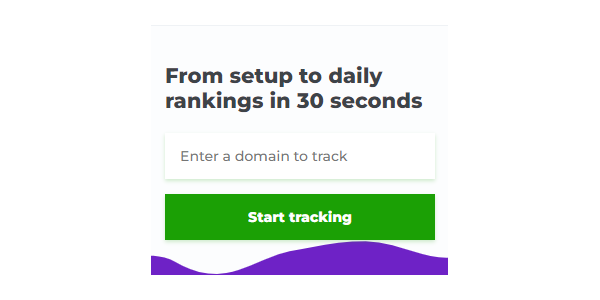Why Do Startups Fail at SEO?
As the market grows more competitive, brands are attempting to maintain their lead. Redoing their search engine optimization endeavors to stay up to date with their audience. This predicament necessitates the utilization of specialized SEO methods in order to accomplish desirable outcomes. Not every agency can manage to accomplish it successfully. It is especially true when you consider startups. This is why startups struggle with their SEO.
Reasons Why Startups SEO Strategy Is Failing?
Let’s examine some of the difficulties that startups encounter when it comes to SEO.
1. Not Opting For Experienced Agencies
SEO might have been a simple process earlier. In order to reach the highest level, you have to tweak the metadata and rewrite a few sections of text. It is now tough to place highly on the first page of rankings. Much is dependent on the selection of SEO firms. Using an agency without much experience will not give you the desired outcome on Google. Competition is intensifying, with a large number of websites catering to the same niche. Only experts can overcome the challenges that businesses today face.
2. Lacking Proper Initial Analysis
A number of SEO companies are eager to begin working on new projects. Due to their haste to get started, they often overlook doing a careful examination. The initial assessment is a crucial aspect of the entire SEO procedure. It sets the tone and depth of the engagement. Without conducting a thorough SEO review, the procedure will not be as effective as planned. In certain situations, it may even harm the brand’s reputation. A detailed analysis should always be a top priority. In the end, it will result in considerable time and energy saved by everyone. Without correct examination, it is not possible to create a comprehensive list of keywords. It leads to inaccurate results.
3. Not Hiring The Right Team
No matter how high-end the tools and resources you possess, it is impossible to achieve success without the correct personnel. Some young businesses mistake having the tools necessary with being competent, and this is the issue. SEO is all about people. It is built by the people, for the people. The software definitely helps, yet having the right expertise is necessary in order to perform an efficient job. When making a selection regarding the team, it is advisable to choose the most excellent one. You need to carefully examine the members to make sure they meet the requirements. Approximately a quarter of all new companies go under due to having an insufficient set of personnel. SEO necessitates a large group of people who are capable of collaborating.
4. Not Enough Data On Competitors
When devising SEO plans, analyzing competitors is an essential part of the process. Companies ought to be more engaged when it comes to this kind of information. Proper competitor analysis can give a brand valuable insights. Understanding the SEO strategies of your competitors can provide insight into forming your own. Making sure you complete thorough research will ensure that the results are of the same caliber as theirs. Sometimes it is useful to figure out how successful campaigns were created. You could take this and make it better so that it is unique to you.
5. Wrong Choice Of Keywords
Investigating the right keywords is likely the basis for an effective SEO strategy. The terms chosen here will be applicable all the way through the procedure. It is essential that you take significant amounts of time to make sure that you are selecting the right options. The exact words used to describe a certain topic, project, or idea depend on the specific topic, how intricate it is, and the amount of money allocated. Before choosing any option, it is important for the business to consider all the relevant factors. It doesn’t mean you should only focus on keywords. Select something based on its importance and how it will function over time.
6. Budgeting Issues
Budgeting is a complex issue, which all newcomers must deal with. Startup SEO is not a commodity that can be purchased as a service. It can lead to variations in cost between different areas. Generally, this is caused by a deficiency of familiarity with SEO. Many newer companies commit the error of not being precise with their expenditures. Or they don’t know how to forecast their budget. If you’re unfamiliar with SEO campaigns, this can be a difficulty when attempting to determine the budget needed. One resolution to this issue is to employ experts to assist you. You have to include them in your monetary plan, but their predictions are correct. You’ll end up saving money in the long run. Consult with knowledgeable SEO firms to get an accurate account of your financial plan.
7. Not Having The Right Customer Profile
A buyer persona should be developed during the primary evaluative process. A customer archetype that closely resembles your perfect buyer is a buyer persona. It helps to highlight problems with your marketing funnel. An abundant amount of energy and funds is devoted by any successful search engine optimization business to ensure things are done correctly. Most problems start with having an inaccurate customer profile. Experts argue that one of the primary reasons for ineffective outcomes in the B2B industry is notidentifying the correct target demographic. A lot of different variables come into play here, such as conduct, age-related considerations, beliefs, and aspirations, among others.
8. Unappealing Website Design
Website design is an area that people often pay little attention to during optimization for search engines. SEO was not important initially, but it is essential now. Having a web design that is flexible and adaptable for all devices is essential for any emerging businesses. Search engines consider the speed at which a page loads and how user-friendly the experience is when deciding its ranking. Many beginning companies are unsuccessful when it comes to SEO as they are not cognizant of this fact. Having a website filled with high-quality graphics is not conducive to your SEO ranking. The website should be simple but look good. One big element in web design is making sure it’s optimized for mobile use. It is predicted that mobile traffic will rise by more than 50% in the years ahead.
9. Thinking Of SEO As An Instant Fix
Brands that had not adopted SEO previously consider it to be a solution that brings quick results. But that is far from the truth. Making sure that all parts of your site are optimized is essential in SEO. This will assist you in heightening your brand ratings and inviting more visitors. It is important to remember that this is an ongoing procedure. After the optimization is accomplished and you are ranked well, the workflow should not stop there. Because other businesses are enhancing their SEO visibility. If you don’t continue to make improvements to your SEO, they will surpass you in rank.
10. Poor/No UI and UX
It’s incredible that many web designers still think that in order to get the most out of search engine rankings, they must compromise on the user interface and the overall user experience. This is totally different from the way search engines function now. Programs such as Google’s Panda are intended to lower the ranking of websites that do not offer an enjoyable experience to individuals.
Design always starts with the user. Search engines come second.
See how the interface works when it is used by your users. Through experience, we have been knowledgeable in the fact that most customers have a shared pattern of usage when accessing a website. A small number of users are enough for us to predict the habits of the majority of people visiting.
11. Slow Page Load Time
Do not think that everyone has the same access to the internet as you do. Stay away from interfaces that depend on Flash, and don’t substitute images or animations for text if text is sufficient. It is especially critical now with the recent move towards mobiles, since internet links are much slower.
A significant amount of people in your audience will abandon the site if it does not load quickly within a few seconds. It’s not necessary to exclude multimedia, but it should be made to load at the last stage, and the website should work fine even if you don’t have access to the multimedia elements.
Don’t skimp on hosting. It is incredibly irritating for someone to have to wait a long time for a web page to load despite having a fast internet connection.
12. Ignorance of Social Media
Even if you had no concern for anything aside from search engines (which isn’t realistic for any startup), you would have to pay attention to social media. Search engines are currently accounting for social signals as part of their algorithms for determining rankings. Social indications are not yet quite as impactful as backlinks, however they are growing more significant as they create a reliable reputation that supports other indications.
13. Blog Content with No Value
Search engines have been designed to assess how successful a webpage is in solving issues for its visitors. The setup isn’t flawless, as everyone experienced with a spammy site is aware, however, it does become efficient at sifting out the garbage gradually.
Make sure that when you create any type of content, you identify what issue it is attempting to address, and make sure it resolves the dilemma better than any other material available online. If you are unsuccessful in achieving a desired outcome, there are two possible explanations: either the corresponding keywords are over-saturated, or an inadequate amount of effort was put into content creation.
This is where it’s worth hiring outside talent. If you do not possess an adequate amount of expertise concerning the topic or do not possess the skill to express it in an advantageous manner, employ somebody with a successful reputation. Bring on someone who is well-known for their blog about the topic and use their standing to enhance yours. This is what can really make you stand out from the others.
14. Targeting Search Engines Instead of Users
It is crucial enough for this concept to have its own heading, and it is likely that you have already started to get the point from what was written in the prior posts.
The era of focusing on the amount of keywords used in content is finished, and it has been for a great deal of time. We continually encounter this misconception very frequently. If you have included your desired keyword in the title, and the article subject pertains to it, then you have fulfilled the keyword criteria. Attempting to create a specific pattern of exceeding the keyword in an article will appear like a spammy piece of writing to people who are reading it.
The same goes for optimized anchor text. If possible, try to work a different version or form of your search phrase into the anchor text of some of your backlinks every now and then. Anchor text is no longer viewed as a miraculous remedy for link building. Excessive use of anchor text can be detrimental and can adversely affect your rankings or even bring punishment. Focus on building links that get a click-through.
Having returning visitors is one of the best ways to demonstrate to search engines that your website is popular. If someone looks up an idea and goes to your website multiple times, the search engines view this favorably and send more individuals to access your site. This is an underappreciated signal.
15. Poor Site Architecture and URL Naming Convention
Making this blunder is especially not hard and it can be a bit more troublesome to rectify than one may anticipate. Here are a few things you should try to avoid:
- Multiple pages with the same or similar content – This one is especially problematic for ecommerce sites, since they often host a huge number of pages with similar content focused on different products. If possible, you want to alter the content so that it’s different for every product. This isn’t always possible, of course, and it can be extremely time consuming. Another alternative is to simply noindex the pages with duplicate content so that Google doesn’t see it. Yes, this will cut product pages out of the search results, but it will also prevent an algorithmic demotion.
- Dynamic URLs – These can be a crucial part of some interfaces, but they can be very confusing for the search engines. Once again, you’ll want to make sure that your dynamic URLs are created in a folder that gets noindexed, or it can lead to massive duplicate content issues and confusion about which page to show in the search results. Create a single canonical URL for each piece of content and focus on promoting it. Noindex your dynamic URLs.
- Meaningless URL Naming Convention – This is less of a problem than it was in the past, so if your site architecture is already built around garbage URLs, it’s actually counterproductive to go back and change them. However, in order to maximize benefit from the search engines, you will want to adjust the way URLs are built in the future. A good URL naming convention makes the hierarchy of the site clear, and makes it clear what each page is about.






